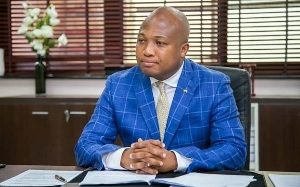A student of the Department of Molecular Biology and Biotechnology, University of Cape Coast has debunked the assertion by Christians that Adam was the first man on earth.
Mr Zakaria Hudu Froko was of the view that while Adam lived on earth only about 6,000 years ago, the world is much older.
He was speaking at the Sixth Annual Central Regional Conference of Ahmadiyya Muslim Students Association has been held at the TI Ahmadiyya Secondary School at Essarkyir. The theme for the occasion was: "Freedom of Religion and belief - Basis of Peace". He said life had passed through different cycles of creation and civilization and Adam, acclaimed as the progenitor of the present human race could not be the very first man in God's creation but was only the first link in the present cycle. He noted that when Adam was created he met primitive people who were living in caves, forests and in mountains, some of who surrendered to Adam as they had seen another creature of their own kind who was perfect in terms of knowledge and culture of belief than them.Supporting his arguments, he said James Usher, an Irish Archbishop established that Adam was created in 4004 BC, which he said was confirmed by other scholars who further established that he was created at exactly 9 am on October 26, 4004 before the birth of Christ.
He maintained that the discovery of some fossils or dead remains by scientists which established that some people lived 19 million years ago was prove that Adam was not the first man on earth.
The Headmaster of Potsin TI Ahmadiyya Secondary School, Mohammed K Ackonu, who spoke on Education and National Development - the Islamic Perspective, said "qualitative education brings development while the absence of it breads ignorance, misery and under-development" and added that education must be seen by mankind to constitute an indispensable asset around which all factors of development revolve.
Alhaj Hafiz Jibril Saeed, Naib Ameer III of the Ahmadiyya Muslim Mission, Ghana who chaired the function noted that mutual recognition and tolerance of each other's religion and beliefs will ensure peace and stability in the country.
Salih Shamsideen, Region President, said the association was to create a platform for learning the basis of the region, sharing and solving members’ problems and for fostering unity among Ahmadiyya Muslim students.


















